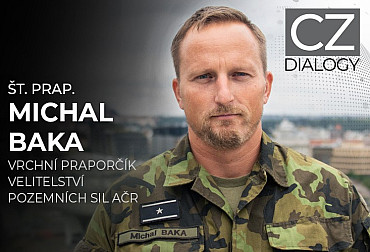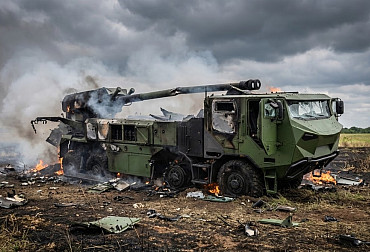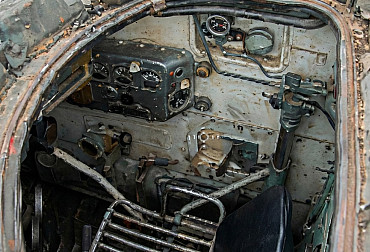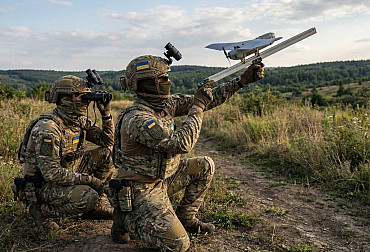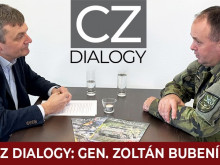František Šulc: Building defence, like building security, is and must be a long-term process
František Šulc has been the First Deputy Minister of Defence of Jana Černochová since January 2022. He is a journalist by profession and even received the Ferdinand Peroutka Award in 2003 for his reporting from Iraq. As a journalist, he has worked in a number of conflict and post-conflict areas (former Yugoslavia, Iraq, Ivory Coast, Afghanistan, Georgia). He has previously served in the Ministry of Defence, as Chief of Advisers to the Minister of Defence since September 2010 and as Director of his Cabinet from 2012-2014. He then went into the private sector, from which he returned to the Department this term. We asked František Šulc for an interview as part of our discussion programme CZ DIALOGY.
Video: Interview with 1st Deputy Minister of Defence František Šulc / CZ DEFENCE
As a former journalist, the First Deputy Minister of Defence is sympathetic to the work of journalists, even if he sometimes does not understand some of the editors' practices. "The moment journalism is about someone telling me something, I run to write a report, because the world is online nowadays and everyone has to know everything immediately, that understanding really disappears. Journalism is, at least for me it always has been, a little bit more than just parroting someone's opinion. It's not about taking one side and taking the other side and saying I'm objective. In order to be able to report on something in a relevant way or to comment on something in a relevant way, I have to study something, I have to know something. This is especially true in defence or security," says Deputy Minister Šulc.
It is worth recalling that František Šulc was present at the creation of the so-called White Paper on Defence in 2010 as part of his former engagement at the Ministry of Defence and can thus assess the development of the army during this period. He can also assess what the minister and his team can achieve in four years of managing the ministry. "We have a tendency to perceive defence, but also security, as if in leaps and bounds, that every year there must be something new. Every year we have to set new goals and every year we have to accomplish something different. Building defence, like building security, is and must be a long-term process. It is for decades, for hundreds of years, and the process must be continuous and, above all, it must be consistent. Your time is very limited, and rightly so. I am talking about four years. Four years is the optimum. Not to revolutionise things, the Minister has said that several times. It's not about revolution, it's about evolution," says František Šulc, adding that within his mandate he must rather come, follow up and correct. As for the White Paper on Defence, František Šulc says that nothing has really changed: "If you look at the documents that have been produced in the ministry over the last 20 years, they basically still describe the same thing, give or take. You need to have a heavy-type brigade, you need to have a light-type brigade. Of course, at the beginning it was more colourful, then it was gradually cut down until we got to the ideal 30,000 troops. By the way, the 30,000 troops was stated in documents going back about 18 years, that's when that number was set out. The Gripens were originally supposed to be twenty-four in 2002, which is rather on the edge of the adequacy of the size of the country."
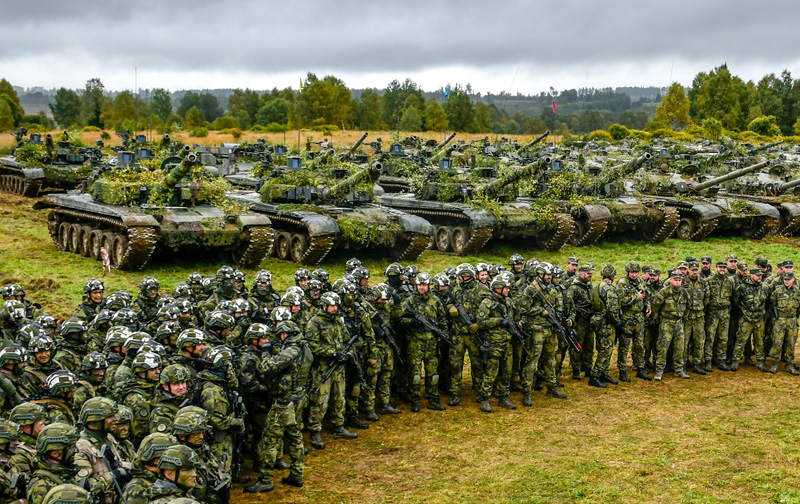
In the interview we agreed that cooperation with the academic community is an important part of the defence sector, where Czech universities can make a significant contribution to the fulfilment of the army's capabilities, especially in the implementation of modern weapon systems, in addressing combat capability in new military domains, etc. But it is also important to involve the private business sector. Why? Because that's the only way to ensure a certain balance. Collaboration with academia is important in both the social and technical spheres. The academy primarily gives you theory. Without theory, there is no practice. The University of Defence in Brno, the Czech Technical University of Technology and other universities create beautiful projects, but they do not always succeed in turning them into serial production," points out Deputy Minister Šulc, according to whom science and research, and especially the connection to real production, is the process that is the most difficult and also the most expensive in the whole chain. Research does not always end successfully and we as a society must be prepared for failure, according to the First Deputy Minister of Defence.
"This is what I call the accounting approach in science, research. I'm not an expert in science, R&D and innovation, but the accounting approach in simple terms is that I have an idea and I get a result that I can get to the market in some time, for some money, with a certain number of people. It just doesn't work that way and we are not mentally set up for it. If I take ten projects and six or seven of them don't turn out well or a little bit differently, that's a big benefit. I should say that some projects did not turn out as expected and I reached a dead end with them and it cost such and such amount of money," says František Šulc and continues. But we can't account for it, the money will disappear and the state can't afford to let the money disappear.
And then there is the second thing, which is terribly important, and that is the transition from a working sample to a prototype and from a prototype to mass production, which is a terribly complicated matter. You can develop and invent pretty much anything in your garage, but very few ideas are such that if you make a working sample you get a billion. A lot of projects that might be good fail. But I think we're getting better at it. The Ministry of Industry is not doing a bad job," says Deputy Minister Šulc.
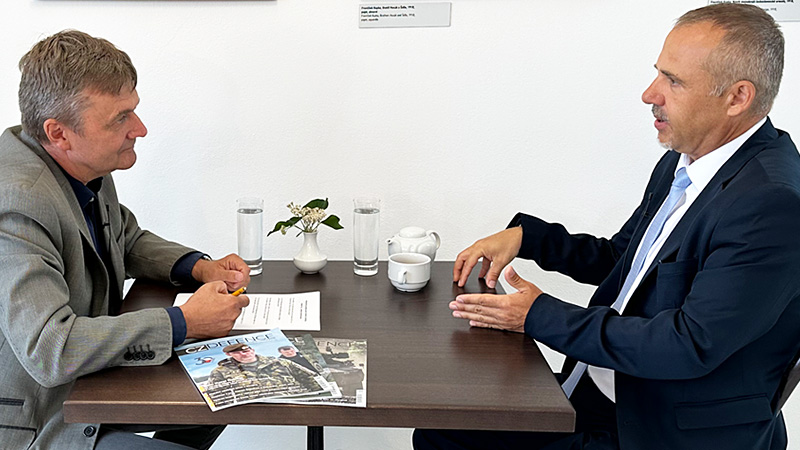
The Czech Republic has enacted 2% of GDP as a stable amount for defence spending. We wondered whether these funds will end up only as military spending or will be shared by other ministries. "Last year, the minister already approached other ministries to identify potential defence spending that they have in their chapter. This year, we are also doing it and a special group has even been formed to look into it. We are basing this on the Alliance methodology and what can be counted in the two per cent. It has to be things that are defence-related. Well, I always use the example of the bridge. You want to build a bridge with a 20-ton capacity and the Department of Defense comes in and says: No, here we have it on this road and it has to be 80 tonnes. At that point, the difference between that twenty tons and eighty tons has a deductible. And we can factor in what is usable by the Army at some point. And it doesn't have to be just equipment, it can be personnel. In the alliance context, we can count it in there, but it has to be state expenditures. It can no longer be, for example, the expenditure of local governments," says First Deputy Defence Minister František Šulc.
In the interview with 1st Deputy Minister of Defence František Šulc we discussed other interesting topics, so if you want to know more, listen to the full interview at the beginning of this article.











